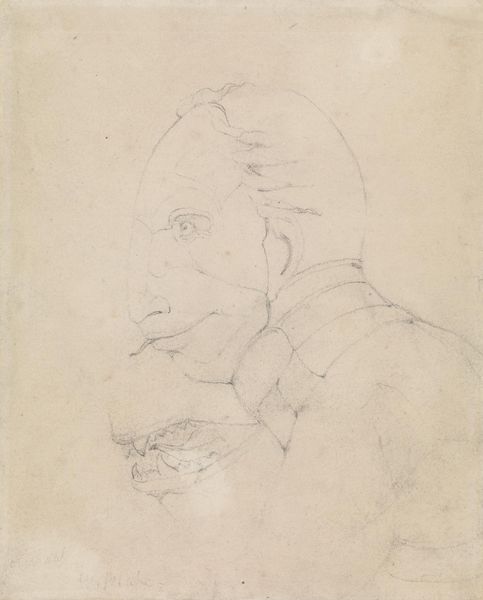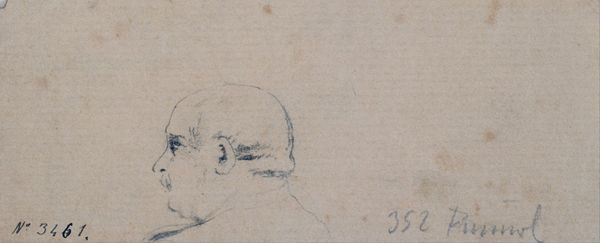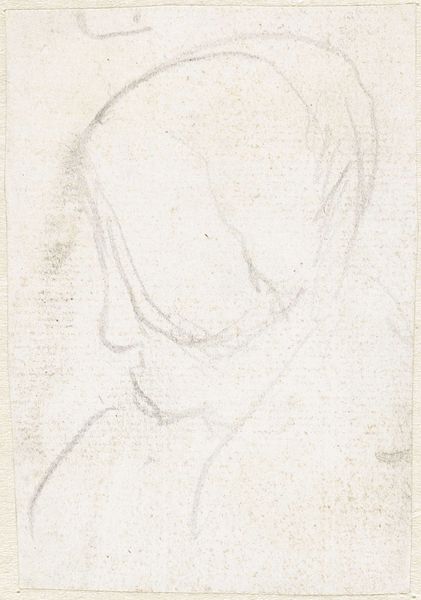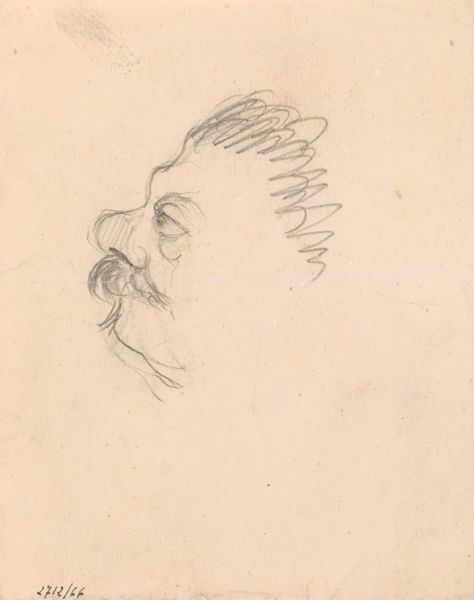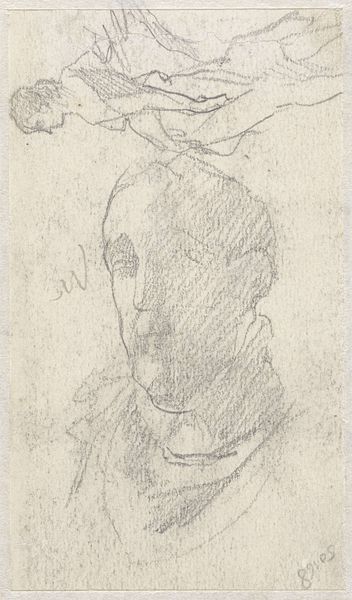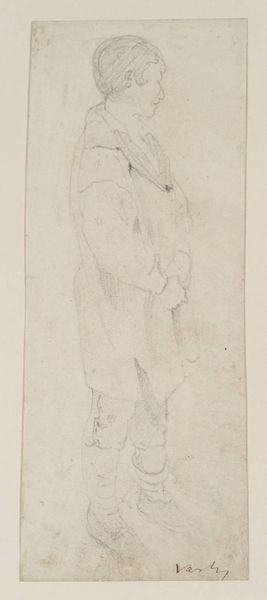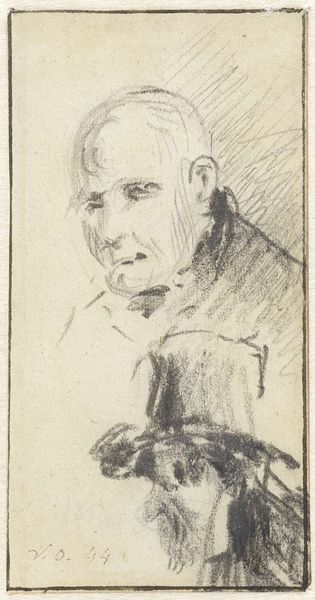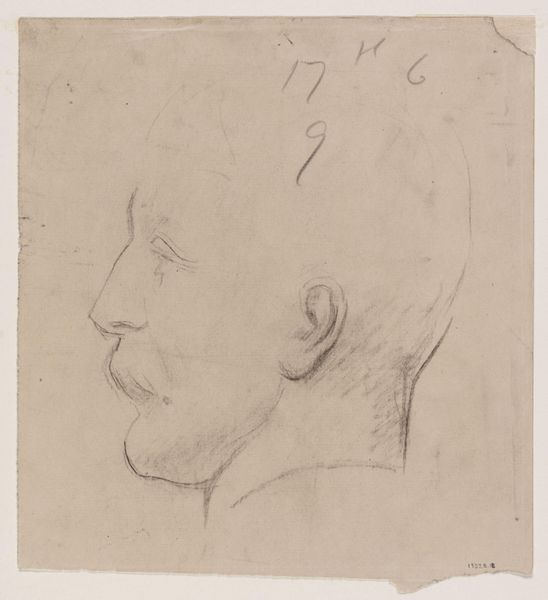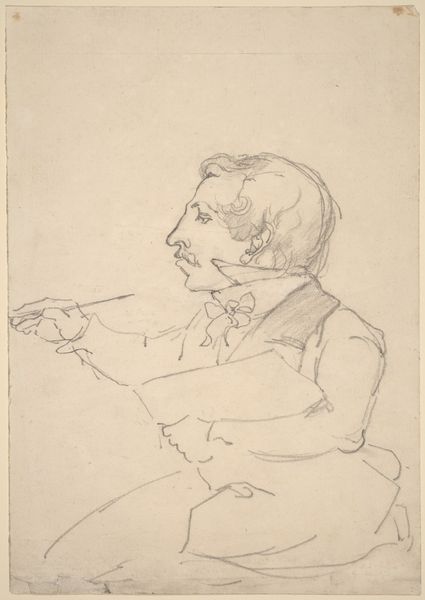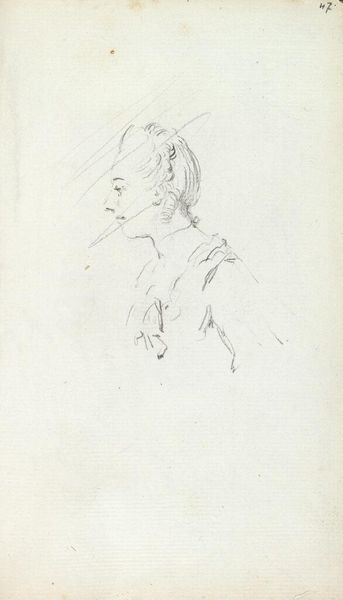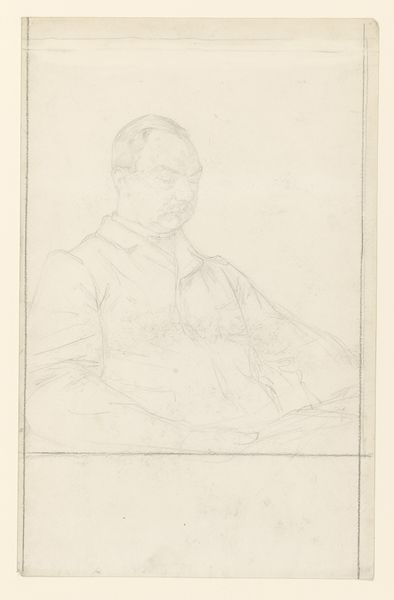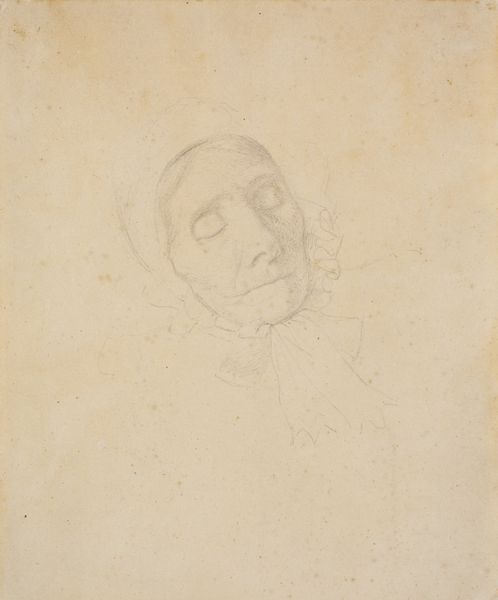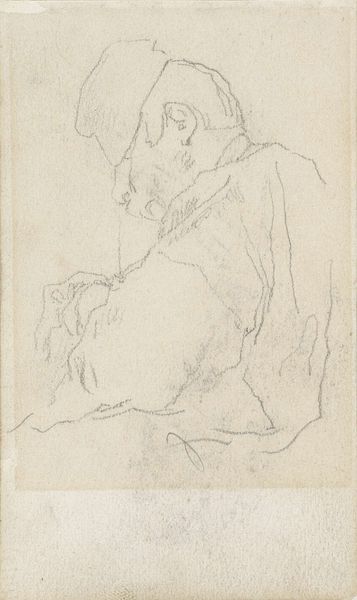
The Head of the Ghost of a Flea. Verso: A Profile and a Reduced Drawing of Milton’s First Wife c. 1819
0:00
0:00
Dimensions: support: 189 x 153 mm
Copyright: CC-BY-NC-ND 4.0 DEED, Photo: Tate
Editor: William Blake’s pencil sketch, "The Head of the Ghost of a Flea," is, well, quite unsettling! It has this spectral, almost nightmarish quality. What strikes you most about it? Curator: Oh, absolutely! It’s a peek into Blake's wild imagination. For me, it’s the sheer audacity of it. To envision, let alone depict, the spirit of a flea! It’s darkly humorous, too. Don’t you think? Like a monstrous caricature. Editor: Definitely monstrous. I hadn't thought about humor, though. What do you make of his choice of subject, besides audacity? Curator: Blake believed in the spiritual significance of everything, even the seemingly insignificant. The flea, for him, wasn't just a pest, but a vessel for deeper truths. Perhaps a commentary on the parasitic nature of society itself? Editor: That's fascinating! I'll never look at a flea the same way. Curator: Nor I. Blake always leaves you pondering, doesn't he?
Comments
tate 9 months ago
⋮
http://www.tate.org.uk/art/artworks/blake-the-head-of-the-ghost-of-a-flea-verso-a-profile-and-a-reduced-drawing-of-miltons-n05184
Join the conversation
Join millions of artists and users on Artera today and experience the ultimate creative platform.
tate 9 months ago
⋮
When they were introduced in 1818, the astronomer and artist John Varley was struck by Blake’s visionary capacity. As a mutual friend put it, Varley ‘readily devoured all the marvellous in Blakes most extravagent utterances’ [sic]. Varley encouraged Blake to draw the figures that appeared to him, resulting in a series of so-called ‘visionary heads’. This unusual example was then used by Varley as an illustration of ‘Gemini’ in his Zodiacal Physiognomy (see the reproduction on the plinth by this showcase). Blake later developed the sketch to produce a finished tempera, hanging nearby. Gallery label, March 2011
